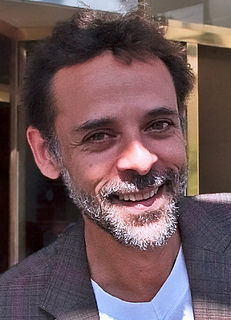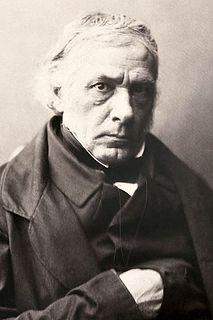A Quote by Albert Einstein
For scientific endeavor is a natural whole the parts of which mutually support one another in a way which, to be sure, no one can anticipate.
Related Quotes
There are parts that you can do them all your life, and no one knows you're even acting, and there are other parts which somehow - I think they say they 'pop' - people notice that you're in and you become an actor from the movies and people take you in a whole different way. Whether or not I can keep that ball rolling is another matter.
The word synergy comes from the Greek sin-ergo, meaning, to work together. It describes a mutually supportive atmosphere of trust, where each individual element works towards its own goals, and where the goals may be quite varied; nevertheless, because all elements of a synergetic system support one another, they also support the whole.
To-day the whole Christian world prostrates itself in adoration around the crib of Bethlehem and rehearses in accents of love a history which precedes all time and will endure throughout eternity. As if by an instinct of our higher, spiritual nature, there well up from the depths of our hearts, emotions which challenge the power of human expression. We seem to be lifted out of the sphere of natural endeavor to put on a new life and to stretch forward in desire to a blessedness which, though not palpable, is eminently real.
All the classical meditation traditions, in one way or another, stress nonattachment to the self as a goal of practice. Oddly, this dimension is largely ignored in scientific research, which tends to focus on health and other such benefits. I suppose the difference has to do with the contrast in views of the self from the spiritual and scientific perspectives. Scientists value the self; spiritual traditions have another perspective.
But the thing that stands eternally in the way of really good writing is always one: the virtual impossibility of lifting to the imagination those things which lie under the direct scrutiny of the senses, close to the nose. It is this difficulty that sets a value upon all works of art and makes them a necessity. The senses witnessing what is immediately before them in detail see a finality which they cling to in despair, not knowing which way to turn. Thus this so-called natural or scientific array becomes fixed, the walking devil of modern life.
LABOUR, like all other things which are purchased and sold, and which may be increased or diminished in quantity, has its natural and its market price. The natural price of labour is that price which is necessary to enable the labourers, on with another, to subsist and to perpetuate their race, without either increase or diminution.
We live in succession, in division, in parts, in particles. Meantime within man is the soul of the whole; the wise silence; the universal beauty, to which every part and particle is equally related, the eternal ONE. And this deep power in which we exist and whose beatitude is all accessible to us, is not only self-sufficing and perfect in every hour, but the act of seeing and the thing seen, the seer and the spectacle, the subject and the object, are one. We see the world piece by piece, as the sun, the moon, the animal, the tree; but the whole, of which these are shining parts, is the soul.




































